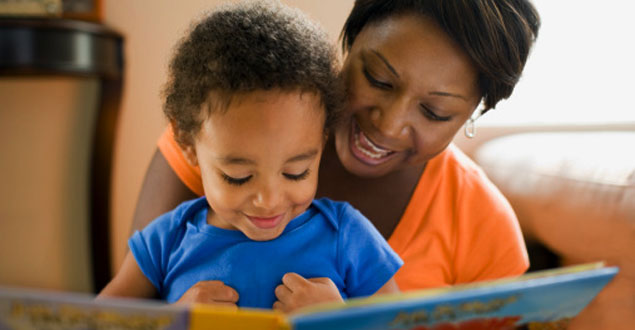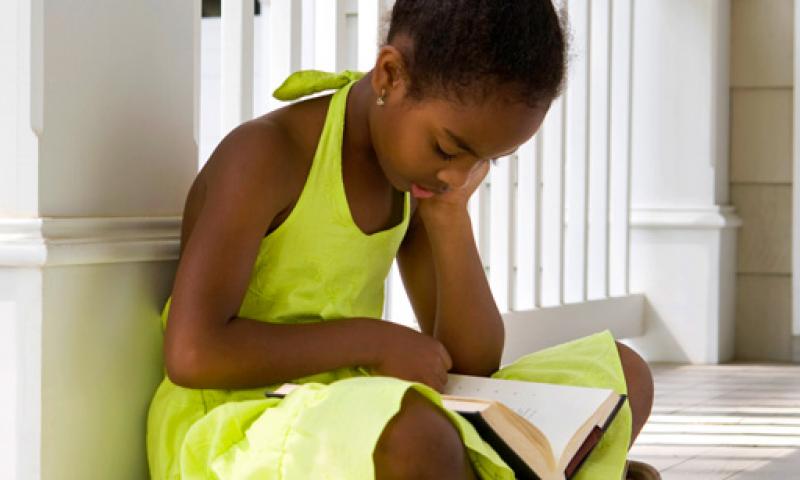No matter what technological advances come our way, reading remains one of the most loved hobbies of all time. For avid readers, picking up a book (or downloading one on a device) is a great way to learn new things or simply relax and relieve stress.
For those who love to read, you may have fond memories surrounding reading when you were younger, ranging from being read aloud to regularly by a parent, grandparent, or older sibling to getting lost in some really good novels. I will admit, reading was not my favorite pastime when I was a kid, but there are several books I remember that had me hooked for hours, including The Babysitters Club, The Indian in the Cupboard, Big Red, The Mouse and the Motorcycle, and The Littles.
Children who read for pleasure become lifelong learners. So how can YOU foster a love of reading in your children? We have put together three important tips to help you starting from birth.

1.Surround your kids with lots of books. Doing so shows them that reading is important and is something that can be done at any time. Provide books that explore different genres, themes, cultures and interests. When we give kids a library and let them choose their own reading material, we provide opportunities for learning that are deeper and more personal. Reluctant readers are also more apt to pick up a book if it is something to which they can relate or one that matches their interests.
Creating a home library for your kids not only helps them develop a love for reading, but findings published in the journal Social Science Research show that raising a child in a home filled with books positively impacts their future academic growth and job attainment. Specifically, as Pacific Standard reported, the study found that when it comes to standardized tests, “Regardless of how many books the family already has, each addition to the home library helps children do better.”
Creating a home library for your kids not only helps them develop a love for reading, but findings published in the journal Social Science Research show that raising a child in a home filled with books positively impacts their future academic growth and job attainment. Specifically, asPacific Standard reported, the study found that when it comes to standardized tests, “Regardless of how many books the family already has, each addition to the home library helps children do better.”

2. Read aloud to your child from the earliest age possible. Studies show reading to babies as young as six months of age leads to stronger vocabularies and better early literacy skills four years later, just as the children are getting ready to go to school.1 Reading and talking to your child from an early age is crucial to their language development, and it’s never too late to start.
“A child care provider reads to a toddler. And in a matter of seconds, thousands of cells in these children’s growing brains respond. Some brain cells are ‘turned on,’ triggered by this particular experience. Many existing connections among brain cells are strengthened. At the same time, new brain cells are formed, adding a bit more definition and complexity to the intricate circuitry that will remain largely in place for the rest of these children’s lives.”2
By reading aloud to your children, you are not only introducing them to new things and new vocabulary, but you are also modeling what good readers do and how they sound.

3. Set aside time to read in front of your children. According to the Scholastic Kids and Family Reading Report, “Children of frequent readers are more likely to be frequent readers themselves.”3 When your children see you reading for pleasure, they are more more likely to also read for fun. You may be thinking, “But I don’t have time to sit and read for myself until the kids are in bed at night.” You are not alone. Instead, share some interesting facts or opinions about what you are reading over a meal or while driving in the car. When you take your kids to the library or bookstore to pick out books, make sure to grab a couple for yourself.
Anything you can do to show your kids that reading is important, interesting and fun will help fuel their love for reading.
References
- Denworth, Lydia. “The Magic of Reading Aloud to Babies.” Psychology Today, Sussex Publishers, 5 May 2017.
- “Benefits & Importance of Reading to Children: Children’s Bureau.” Child Abuse Prevention, Treatment & Welfare Services | Children’s Bureau, 4 Sept. 2020,
- Scholastic Kids & Family Reading Report, 7th Edition https://www.scholastic.com/ readingreport/home.html

